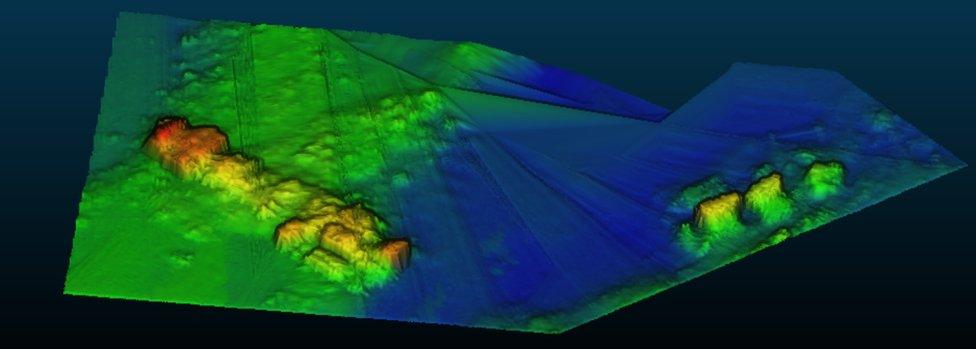Site of lost World War One warship confirmed off Orkney
- Published

The survey made what is called a multibeam echosound image of the wreck site
The site where a World War One warship is believed to have been sunk by a mine has been confirmed close to Orkney's Old Man of Hoy.
An archaeological maritime survey identified the wreck as HMS Pheasant.
The destroyer sank on 1 March 1917 after hitting a mine believed to have been laid by a German U-boat. All 89 crew on board were lost.
The first view of the wreck using multibeam sonar technology has been released.
Only the body of Midshipman Reginald Campbell Cotter, 20, was recovered and he was buried at Lyness on Hoy.
The Clyde-built HMS Pheasant had set out from Stromness on a patrol when it sank.
Archaeologists believe it struck a mine which had been laid about two months earlier by submarine U-80.
Orkney Research Centre for Archaeology (ORCA), University of the Highlands and Islands Archaeology Institute and SULA Diving were involved in the survey.
Marine Scotland vessel MV Scotia was used in making scans of the seabed.